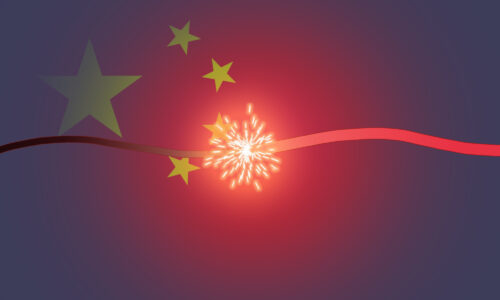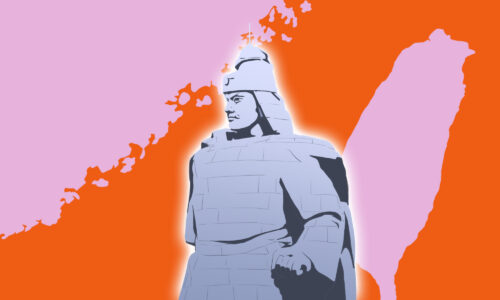The complete Chinese history: A timeline of major events


This week’s column — which will be the last one in our Kuora series — comes from one of Kaiser’s answers originally posted to Quora on January 10, 2016. It’s a fitting end, considering all the subjects Kaiser has written about over the past.
What should a major event chronological list be like for a beginner to learn Chinese history?
If I were to put together such a list for a beginner — and by “beginner” I’m assuming, say, a relatively bright undergraduate — it would include the following:
- The land and the people
- China’s geography and climate and their impact on Chinese civilization
- The major river systems of China
- Mythohistory: the legendary sage kings and their probable historical counterparts
- The Xia dynasty
- Beginnings of a Chinese state: The Shang dynasty
- Shamanic religion: Scapulimancy and bronze vessels
- Early Chinese cosmological concepts
- The Zhou conquest of Shang
- The great Zhou kings, Wu and Wen
- The idealization of Zhou feudalism in later Confucian thought
- The Crisis of 771 BC and the Eastern Zhou
- The Spring & Autumn Period and early Chinese philosophical traditions
- Confucianism
- Taoism
- Warfare in the Spring & Autumn Period
- The Warring States Period
- The major Warring States (Qi, Chu, Yan, Han, Zhao, Wei, and Qin)
- The Hundred Schools of Thought
- Mencius
- Han Fei
- Xunzi
- Mozi
- The Rise of the Qin State
- The Unification of China under Qin
- The creation of the first modern state
- The rapid collapse of Qin
- The Chu-Han Contention
- The Western Han Dynasty
- Liu Bang
- Han Wudi
- The Xiongnu, and the constant struggle between steppe and sown
- Confucianism as official state doctrine
- Sima Qian and Chinese historiography
- Early Han contacts with the West
- The decline of the Western Han: Great families, eunuchs
- The Wang Mang interregnum
- The Restoration of Han
- Religious Daoism
- The collapse of state power in Eastern Han
- The wars of the Three Kingdoms
- The Battle of Red Cliff
- The end of Shu Han
- The triumph of Wei
- The Six Dynasties and Sixteen Kingdoms
- The southern dynasties
- The northern “barbarian” kingdoms
- The spread of Buddhism in China
- The Turco-Sinitic aristocracy of North China in Sui and Tang
- Reunification under Sui
- The Tang Dynasty
- Li Yuan and Li Shimin
- Wu Zetian (Empress Wu)
- Tang at its cosmopolitan zenith (Tang Minghuang)
- The arts in Tang: Poetry, pottery, exoticism
- Buddhism, Taoism, and Confucianism in Tang China
- The Battle of Talas
- Yang Guifei and An Lushan
- The An-Shi Rebellion
- The restoration of Tang
- Han Yu and post-An Lushan nativism
- The Huang Chao Rebellion
- The Five Dynasties and Ten Kingdoms
- The rise of the Khitan
- The Northern Song Dynasty
- The triumph of civilian over military aristocracy
- The maturation of the Confucian civil service
- The Naito Hypothesis: China’s early modern transition, Tang-Song
- Song Neo-Confucianism (Zhu Xi)
- The Rise of the Jurchen
- The Jin dynasty of North China
- The Wang Anshi Reforms
- The Conservative Opposition
- Yue Fei and Song Resistance
- The Mongol Conquest
- Kubilai Khan and the Mongol Yuan dynasty
- Zhu Yuanzhang and the founding of the Ming
- The Rise of Zhu Di (the Yongle Emperor)
- The voyages of Zheng He
- Ming isolationism
- Wang Yangming and late Neo-Confucianism
- The Bao-Jia system in Ming
- “Dwarf bandits” and the late Ming
- The Rise of the Manchus
- Nurhachi, Hong Taiji, and Abahai
- Li Zicheng and the Fall of the Ming
- The Kangxi Emperor
- Pacifying China in early Qing (Revolt of the Three Feudatories)
- The Yongzheng Emperor
- The Qianlong Emperor
Kuora: China’s dramatic fall from grace and its long road back to respectability
- The Qing conquests
- The Macartney Mission
- Lin Zexu and the First Opium War
Kuora: The Opium Wars and China’s Century of National Humiliation
- The Unequal Treaties
- Hong Xiuquan and the Taiping Civil War
- Zeng Guofan, Li Hongzhang and the Self-Strengthening Movement
- The Second Opium War (Arrow War)
- The Qing restoration of the 1870s
- The First Sino-Japanese War and the Scramble for Concessions
- The Hundred Days Reforms
- Kang Youwei and Liang Qichao
- The Boxer Uprising
- Late Qing Reforms
- Sun Yatsen and the Tongmenghui
- The Xinhai Revolution
- Yuan Shikai
- Second and Third Revolutions
- The Kuomintang
- The Warlords
- Duan Qirui, Wu Peifu, the Zhili/Anhui Cliques
- The “good” warlords (Yan Xishan, Feng Yuxiang)
- Zhang Zuolin
- The May Fourth Movement / New Culture Movement
- Liberalism, scientism, anarchism, socialism, communism
- Cai Yuanpei, Hu Shi, Lu Xun, Chen Duxiu and other May Fourth notables
- The First United Front: Nationalists, Communists, and the Comintern
- The intraparty struggle in the KMT after Sun’s death
- The Rise of Chiang Kai-shek
- The Northern Expedition
- The White Terror of 1927
- Shanghai during the Nanjing Decade
- The Jiangxi Soviet
- Rising Japanese militarism (the Mukden Incident)
- The Long March
- The Rise of Mao Zedong and agrarian communism
- Japan’s conquest of Manchuria
- The Xi’an Incident
- The Second World War in China
- Chongqing, Yan’an, and the Collaborationists
- Chiang Kai-shek and the Americans
- Civil War, Pt. 2
- The Communist Victory
Kuora: All the times the Chinese Communist Party nearly died
- Land Reform, the Marriage Law
- The Korean War
- The High Tide of Collectivization
- The Hundred Flowers Movement/The Anti-Rightist Campaign
- The Sino-Soviet Split
- The Great Leap Forward
- Mao in Retreat: the Liu Shaoqi/Deng Xiaoping interregnum
- The Great Proletarian Cultural Revolution
- The purge of Lin Biao
- The Rise and Fall of the Gang of Four
- The Nixon/Kissinger Opening
- The Tangshan Earthquake
- The Death of Mao
- Deng Xiaoping’s return
Kuora: Celebrating Deng Xiaoping, who saved contemporary China
- The Democracy Wall Movement
- Reform and Opening begins: The Household Responsibility System
- Hu Yaobang, Zhao Ziyang, and liberal reform
- The Tiananmen crisis of 1989
The unlikely confluence of events that led to the 1989 Tiananmen Square protests
Kuora: How many Chinese know about the ‘June Fourth Incident’? More than you think
- Deng Xiaoping’s “Southern Tour”
- The Hong Kong Handover 1997
- WTO accession, 2001
- Jiang Zemin and the heyday of Chinese capitalism
- Hu Jintao and Wen Jiabao
- The Internet revolution
- Pivot Point 2008
- The Urumqi incident 2009
- The Rise of Xi Jinping
- The Bo Xilai Affair, 2012
- The Xi Jinping Anti-Corruption Drive
Did I leave out any important topics in this imaginary syllabus? Let us know.
Kuora was a weekly column. We hope you enjoyed it. Here are a few of our favorites:
Kuora: The bias inherent in American media portrayals of China
Kuora: Why does the Chinese Communist Party believe it is essential to China?
And here was the very first:






